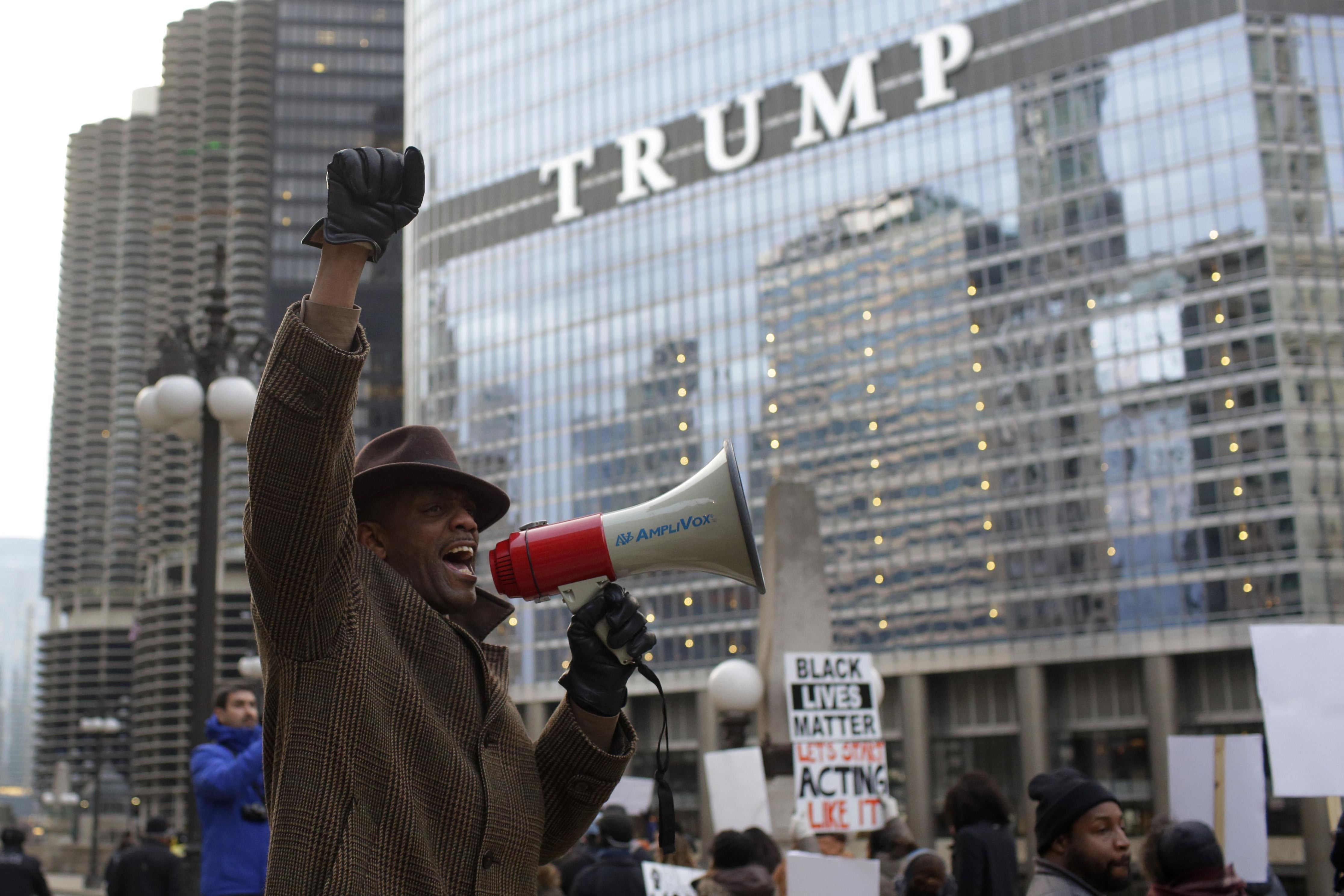Too many observers treat American politics as a contest between rival groups of white people. It’s how you get dubious claims that Donald Trump broadly represents “working-class” voters or the related narrative that pits a monolithic “coastal elite” against a so-called heartland, ideas that cannot survive contact with any consideration of black political behavior. The result is that black Americans and other groups—which represented nearly 27 percent of the electorate in 2016, more than 36 million voters—get erased from mainstream political discourse and are ignored as full citizens and political actors.
But focusing on white political conflict doesn’t just remove blacks and other nonwhites from the state of national politics. It also obscures the racial dimensions of white politics, rendering invisible the historic interest—across much of white society—in preserving white racial hegemony.
Writer James Traub does something akin to this in a piece for the Atlantic that takes a critical view of the Democratic Party’s midcentury embrace of racial liberalism, in which the party “exchanged a politics of self-interest for a politics of moral commitment,” asking its white supporters in the suburbs and cities to sacrifice for the sake of civil rights. Traub doesn’t fully obscure white voters’ racial interest. Instead, he minimizes its scope and holds it out as essentially understandable, something that liberals should accommodate as they move forward from the present moment.
Traub recounts the career of Minnesota Democrat Hubert Humphrey, whose efforts brought racial liberalism to the Democratic platform and sparked a revolution that culminated in Lyndon Johnson’s dramatic push for civil rights legislation in the 1960s, nearly 20 years after he opposed Harry Truman’s attempt to end the poll tax as a candidate for Senate.
Traub has his history right. Johnson’s push was the beginning of a process that split the Democratic Party from the bulk of white America, setting up the conservative counterrevolution of the 1970s and 1980s. But he sympathizes with those, especially in northern cities, who resented Democratic efforts to integrate their schools and neighborhoods. “It was a lot to ask, especially outside the South, where whites did not feel complicit in a legal system of racial separation (even if they should have felt complicit in a de facto system).”
Traub wants to put an asterisk next to the civil rights gains of the 1960s, asking liberals to consider the costs of their choices in 1948 and 1968, given the fact of a white backlash so potent it put Donald Trump in the White House: “The sense of superior moral standing that liberals derived from defending the rights of the marginalized often blinded them to the effect of their policies on white Americans (and at times on the marginalized themselves).”
What’s striking, in all of this, is that Traub is building toward a conclusion—that liberals, in the future, should tread carefully as they regard the rights of racial and other minorities—which he won’t say outright. But rather than make the point directly, he hedges around it, letting readers make the implication: “Trump voters also may have reason to feel that something precious is being taken from them. Maybe it behooves today’s Democrats to take those grievances more seriously than they’re inclined to.”
Whether you grasp that implication depends on whether you understand what Traub means when he says “something precious.” It’s connected to an earlier point in the essay, where he writes that “Once the Great Society began to confer rights and privileges on black people beyond the Jim Crow South, whites who, whatever the truth of their behavior, had no consciousness of having kept blacks down began to feel that their abstract commitment to the cause of civil rights carried a very real cost.”
The cost and the object are the same: white racial hegemony. And far from having no consciousness of keeping blacks down, by the 1960s, northern whites had a recent history of antiblack policy and practice reinforced by antiblack violence. Traub depicts whites outside the South as largely innocent actors pushing back against liberal overreach. But the segregation that made busing necessary—which he attributes to blacks and whites simply “liv[ing] far apart”—was built just decades earlier by white bankers, realtors, and homeowners, who enforced rigid racial lines with every tool at their disposal, backed by local, state, and often federal authorities.
None of this is apparent in the piece. Indeed, the argument depends on not having a sense of the depth of commitment to white racial dominance among many white Americans, a commitment so deep that the decades after the 1960s would see millions of whites abandon cities and other public spaces rather than back or accept integration. To counsel sympathy for this commitment and behavior, as Traub does, is to acquiesce to dynamics of racism that entrench disadvantage, increase inequality, and weaken the movements that aim to ameliorate both.
Above all, Traub’s argument treats the lives and livelihoods of black Americans (and other marginalized groups) as immaterial. Civil rights for blacks or any people of color bear no consideration on the merits. The limits of justice are what whites will tolerate, and if most whites won’t move, then liberals shouldn’t push.
Because of that, Traub’s essay is emblematic. Not just of its genre—the post-2016 push against “identity politics” from writers like Mark Lilla and Andrew Sullivan—but of a larger tendency in American political thinking: one that puts race on the sidelines and treats American politics as a parlor game, with nonwhites as a bargaining chip in a negotiation between white people.
